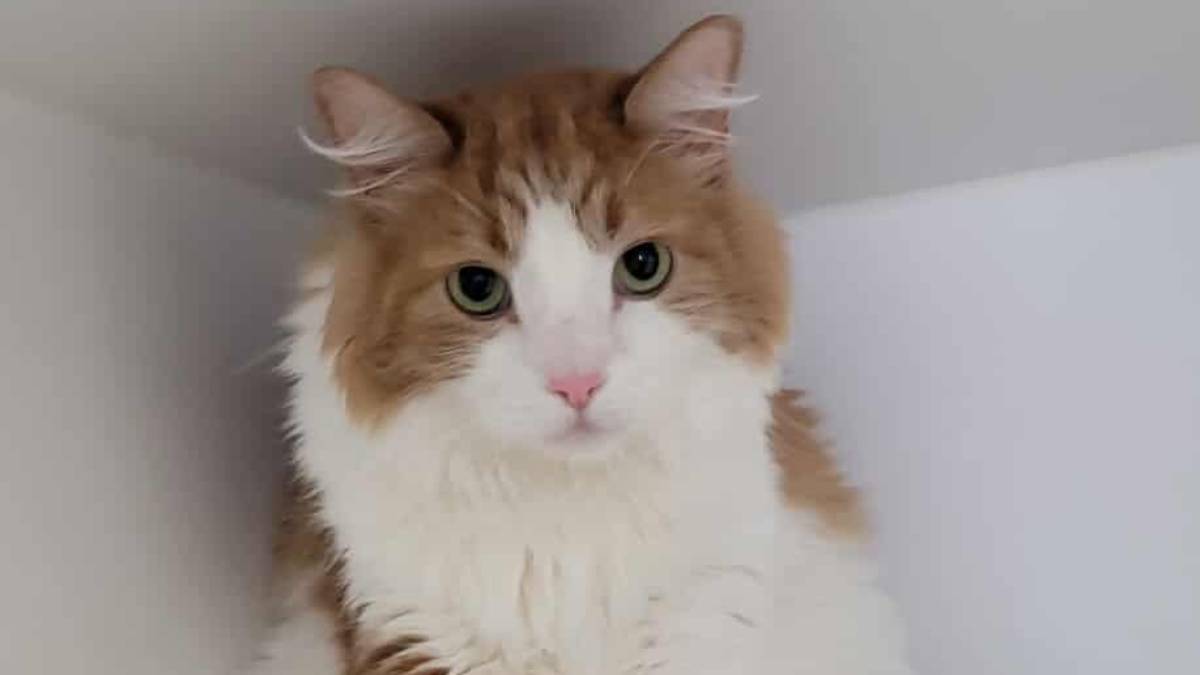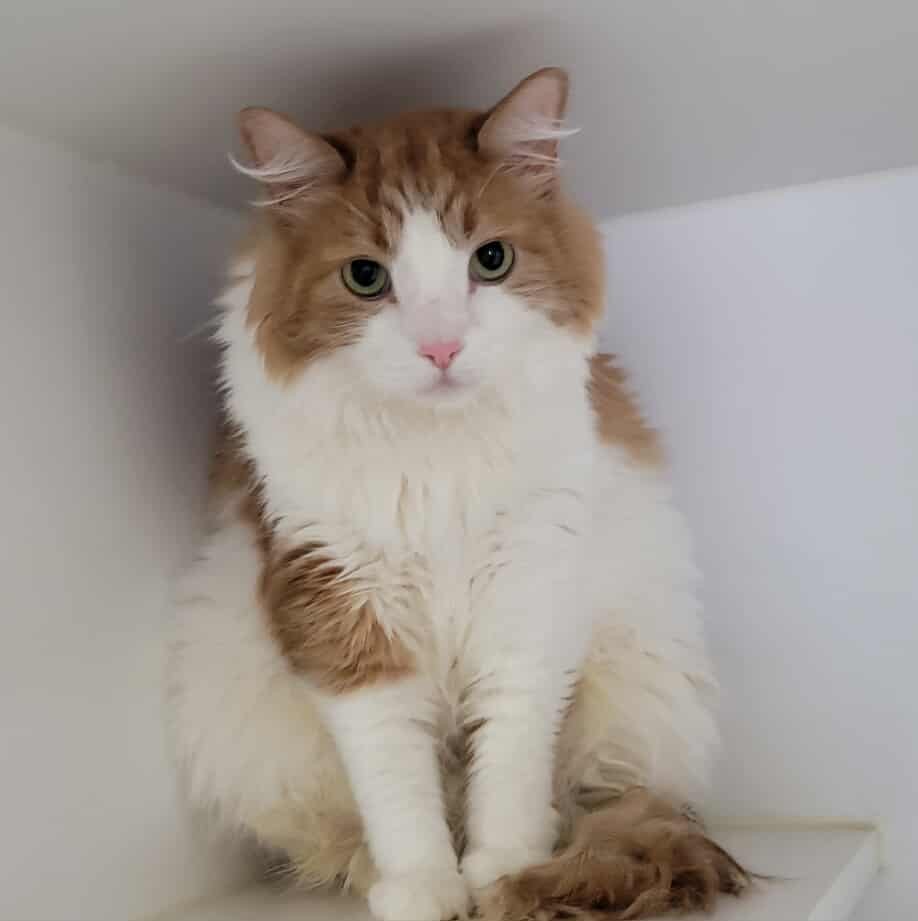📖 Table of Content:
In a heartbreaking story from Washington, a cat named Arius has been returned to Adams County Pet Rescue after spending three years in a home. The reason given by his former owner? Litter box issues. But as shelter staff dug deeper into Arius’s history, they uncovered a sad truth: the problem wasn’t behavioral—it was a direct result of neglect.
Arius had been adopted from the shelter three years prior. He was described as a friendly, curious, and loving cat who adjusted well to home life. However, when he was returned, staff noticed signs of severe stress. Arius was defensive, even biting a staff member during intake—a reaction that was unusual for a cat known to be gentle and affectionate.
As the shelter investigated, more details emerged. It was revealed that the owner had previously taken Arius to groomers, only to be banned from two facilities due to behavioral concerns. But the most troubling aspect of the story was his litter box care.
The owner admitted to cleaning Arius’s litter box only once a week, sometimes once every two weeks. Eventually, the box went uncleaned for as long as a month at a time. This lack of hygiene created an unbearable environment for Arius, who naturally craves cleanliness and order.
Cats are inherently fastidious animals, and a dirty litter box can lead to stress, discomfort, and inappropriate elimination. When forced to live in these conditions, Arius’s behavior—urinating or defecating outside the box—wasn’t rebellious; it was a natural response to a frustrating and uncomfortable situation.
Adding to the problem, Arius’s size further complicated his living conditions. At 15 pounds, the standard kennels and litter pans used by the owner were too small for him. The combination of inadequate space and unsanitary litter conditions created a perfect storm, leaving Arius stressed and anxious, and ultimately resulting in his return to the shelter.
Understanding, Compassion, and a Second Chance
Arius’s story has struck a chord with pet lovers everywhere because it highlights the often-overlooked responsibilities of pet ownership. Caring for an animal goes far beyond providing food and water—it involves attending to their physical needs, emotional health, and environmental comfort.
Cats, in particular, are sensitive to changes in their surroundings, and neglecting something as fundamental as litter box cleanliness can have serious consequences.
The shelter has emphasized that Arius is not a “bad” cat, nor is he difficult. His behavior was entirely understandable given his living conditions. Now back in the care of Adams County Pet Rescue, Arius is slowly adjusting to life in a clean, calm environment. Shelter staff are providing him with proper litter facilities, adequate space, and plenty of affection, allowing him to regain his confidence and trust in humans.
The staff is also committed to finding Arius a new forever home, where he will be loved and cared for properly. They hope that this time, Arius’s adopters will recognize the importance of meeting his needs, including regular litter box maintenance, appropriate living space, and consistent attention to his emotional well-being.
Arius’s journey is a powerful reminder of the importance of compassion and understanding in pet care. While it is easy to become frustrated with a pet’s behavior, it is crucial to consider the underlying causes. In many cases, what appears to be a “problem” is actually a signal that an animal is in distress or living in unsuitable conditions. By addressing these needs, pet owners can prevent unnecessary suffering and ensure that their animals live happy, healthy lives.
The story has also sparked conversations online about responsible pet ownership. Many animal advocates stress the importance of educating adopters about the practical aspects of pet care, particularly for cats, who may be more sensitive to environmental stressors than some realize. Arius’s experience serves as a cautionary tale: even when a pet has been part of a family for years, neglecting their fundamental needs can result in heartbreak for both the animal and the humans involved.
As Arius settles back into the shelter, staff remain hopeful. They report that he is beginning to show signs of relaxation and curiosity, exploring his new environment and interacting with caretakers. His resilience in the face of such neglect is remarkable, and it gives hope that with the right care and love, he will thrive again.
In the end, Arius’s story is one of second chances. While his first home failed to meet his needs, the shelter provides him with an opportunity to find a place where he will be truly cherished. For those considering adopting a pet, Arius’s experience underscores a critical lesson: meeting an animal’s basic needs—cleanliness, space, emotional care—is not optional; it is essential. When these needs are met, pets like Arius can live joyful, healthy lives and bring immeasurable happiness to their human companions.

